Martin Auer: The Strange War, Stories for peace education

Foreword
Please share if you want to help to promote peace!
| 夢を見る人 |
| おそれ |
| おそれ再び |
| Foreword |
| Download (All stories in one printer friendly file) |
| About the Translator |
| About the Author |
| Mail for Martin Auer |
Licence
|
Bücher und CDs von Martin Auer

In meinem Haus in meinem Kopf
Gedichte für Kinder

Die Prinzessin mit dem Bart
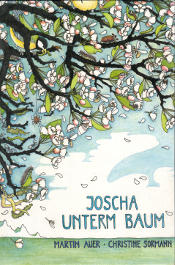 Joscha unterm Baum
Joscha unterm Baum
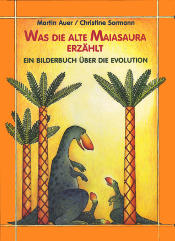
Was die alte Maiasaura erzählt
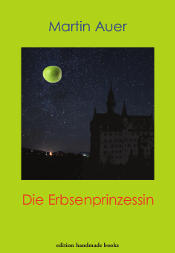
Die Erbsenprinzessin

Der wunderbare Zauberer von Oz - Hörbuch zum Download
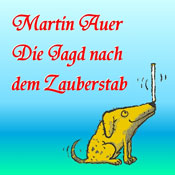
Die Jagd nach dem Zauberstab, Roman für Kinder - Hörbuch zum Download
 Der seltsame Krieg
Der seltsame KriegGeschichten über Krieg und Frieden
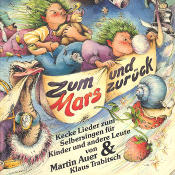
Zum Mars und zurück - Lieder
 Lieblich klingt der Gartenschlauch - Lieder
Lieblich klingt der Gartenschlauch - Lieder
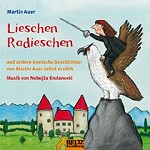
Lieschen Radieschen und andere komische Geschichten - CD
Ever since I started writing books for children, I have considered it important to deal with the difficult subject of war and peace in a way that children can understand. It seems to me that it is not enough to tell children that war is terrible and that peace is much nicer. Although even that is a step forward, of course, considering there was once a youth literature that glorified the military and combat action. But most children in our latitudes know that war is something terrible and peace is much nicer. But is peace possible? Or is war an unavoidable destiny that keeps befalling humankind? Doesn’t our history class, as well as the evening news, teach us that war has always existed everywhere in the world and is still with us? A culture of peace, understanding of others, peaceful resolution of conflicts – all of that is well and good: but what if the others do not want to go along?
I cannot imagine how we can banish war from the life of humankind, if we do not search for the causes of war. Only when the cause of a disease is discovered, can a focused and effective method be found to fight it.
It is true that I just skipped all my history classes at university, but at home I have continued my studies of history for myself to this day because, as a writer, the question of what determines people’s actions and thoughts is naturally always on my mind. But of course I cannot claim to have found the philosopher’s stone or that in my stories I could absolutely explain the causes of war. And I also cannot present a complete recipe for the avoidance of future wars. But I want the stories to do more than just give people "food for thought." Writers are always trying to give people something to think about, but at some point, someone is going to have to start thinking. The stories I have collected here are intended to suggest a direction in which a person can continue to think; they are intended to convey a feeling for where and how to search for the causes of war.
Maybe the intentions of the book can best be summed up like this: I try to show how our actions can be interconnected in such a way, that the ones who do not try their best to further their own interests must perish. But that on the other hand by each of us trying to further our own interests we may in fact unintentionally increase the loss or make worse the damage for all of us. And that we cannot escape this dilemma unless we communicate with each other and coordinate our actions. This moral is simple enough, but the hard thing is to really see through the complex ways in which the actions of individuals, groups, nations, states on this planet are interconnected.
I am trying to teach children to begin to recognize that sort of social mechanism, and I think that this is a novel approach in children's literature.